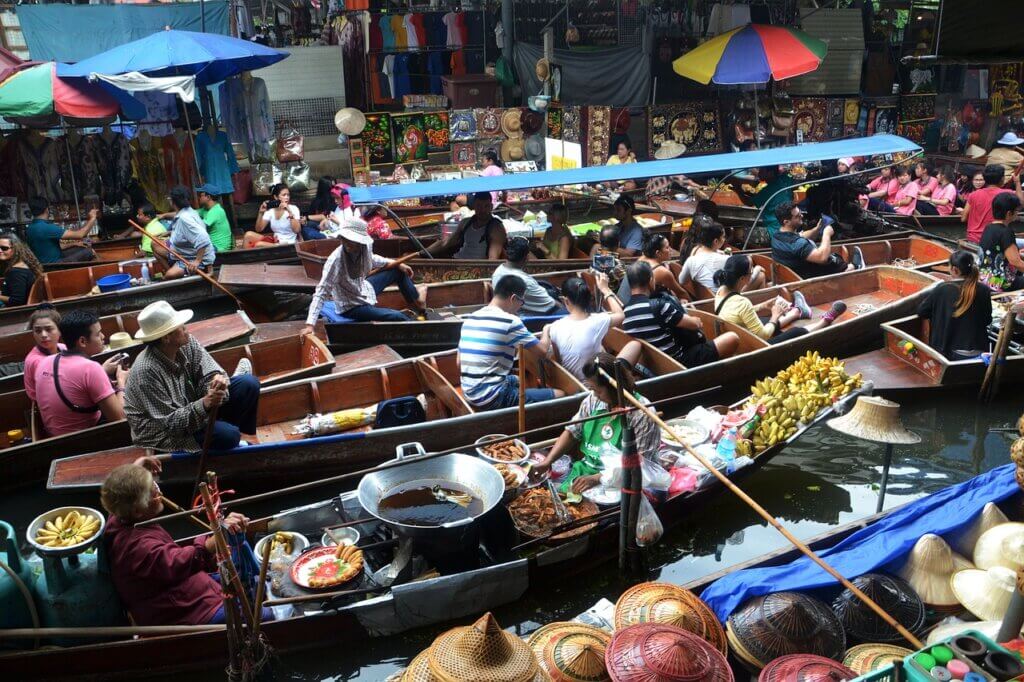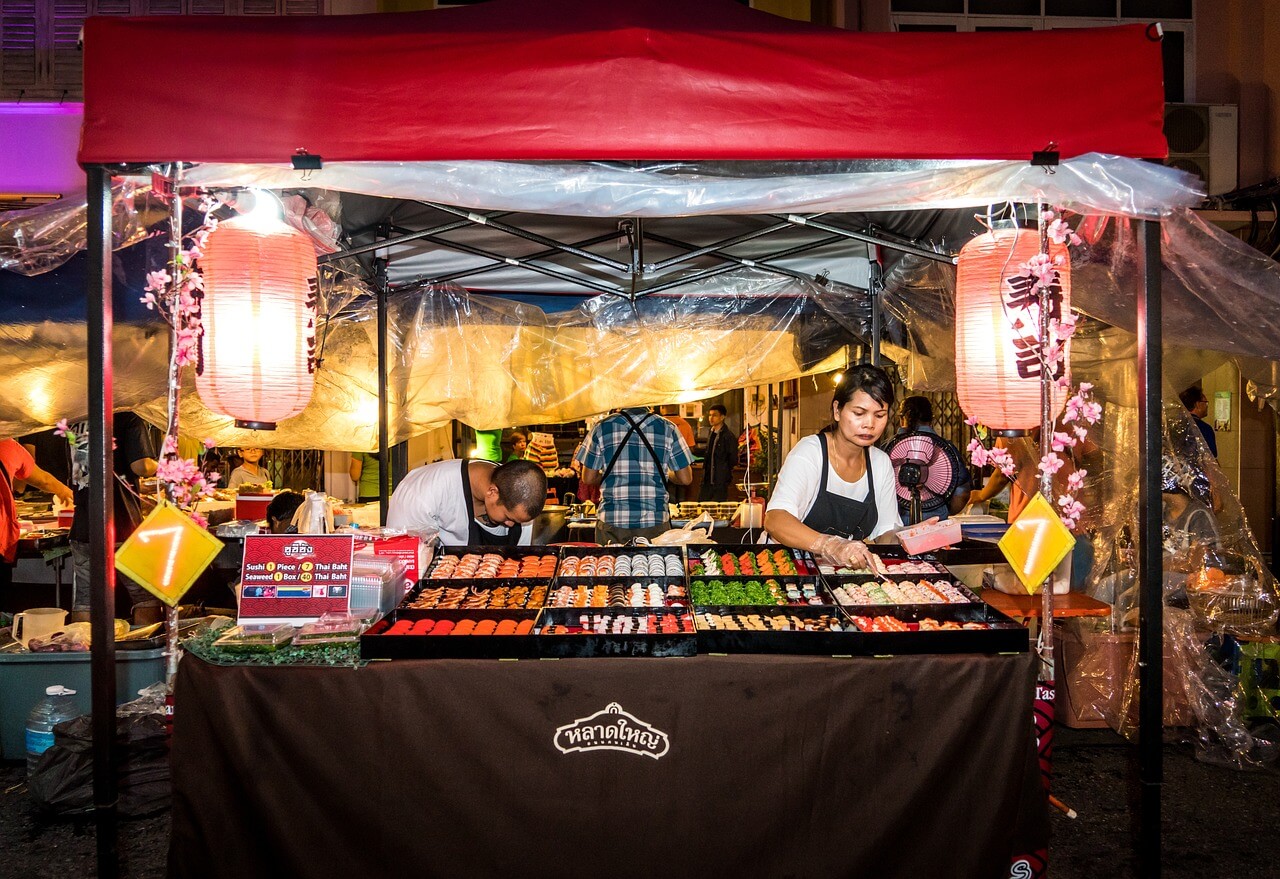Even for the most timid of travellers, snagging a price you fought for is a travel victory. While it's often impossible to pay the same rates as locals, bargaining does get you that much closer. It's also a great way to plunge yourself into local cultures and customs. Win-win!
Knowing how to haggle effectively can be the difference between being an offensive tourist or landing yourself a seriously hot deal. So, want to stop overpaying for local goods in a sensible way? Here's how to bargain while travelling anywhere in the world!
1. Speak the language (or a smidgen of it)
You needn't be fluent, but knowing a handful of phrases in the local language creates a big advantage. When you can, it's advantageous to visit markets with a local or someone who fluently speaks the language. Regardless, these are good phrases for you to learn when travelling:
- “Please” and “thank you”
- “How much/what is the price?”
- “That's too expensive”
- Basic numbers (as applicable to the currency – e.g. tens, hundreds, thousands, etc.)
Knowing even just these sentences makes you a far less obnoxious tourist. Think about it – would you be more inclined to give a good price to someone who pops into your shop shouting, “Hey, how much is this?!” or someone who makes a feeble attempt to greet and ask for a price in your language? Every effort counts!
2. Learn when it's appropriate to haggle
Save yourself the awkwardness or potential offense of haggling when it's non-negotiable. How? Look it up! Google search (e.g. “can you haggle at markets in Greece”), ask a trusted local, and/or pick the brains of staff/hosts at your accommodation. Lonely Planet and TripAdvisor forums are also good resources for info on local customs and bargaining norms.
Even better than knowing what's fixed in price is being aware of what is negotiable. Anything from meals to show tickets can be flexible in price, depending on where you are in the world. We've seen this firsthand on the road, discovering that items like bus tickets in Colombia and hotel rooms in Morocco were entirely negotiable. It's worth asking!

3. Assess the going rate of the item
If you're at a market, compare prices at various stalls. Usually you'll get a better offer by asking “how much is this?” rather than just looking idly at price tags – pretend you never noticed them! Visiting official shops (e.g. government-run craft stores or an official tourist office) can also give you an idea of regulated prices as a guideline.
If you're shopping for a bigger ticket item (e.g. instruments, rugs, ceramics), try asking hotel/hostel staff, travellers who have bought the same item, or a trustworthy local how much is fair to fork out.
4. Let the seller set the first offer
The seller is always going to offer a rate that's hugely higher than the item's worth. By allowing the vendor to set a price first, the negotiation is then expected to continue downwards.
So, allow the seller to suggest a price. Be hesitant and show astonishment if you know the price is high. Don't be afraid to hem and haw over the initial offer. This should lead to one or two even lower offers. From there, keep negotiating for less (tips on doing this in our next point!).
5. Offer a midpoint price and prepare to compromise
Okay, so the vendor has set a price. What to do next? Pick a midpoint price of your final desired price. Depending on the item, you could go one third or half of what you wish to pay. So if a vendor offers $20, you could offer $10 and expect to end up somewhere around $15 in the end if that's an amount you're happy with.
6. Buy multiple items for a better price
Shop with a friend searching for similar souvenirs or try to find a shop selling a number of items that you're looking for. Generally, the more you buy from a vendor, the better a rate you can ask. It's helpful to be a repeat customer (bring hostel friends!). Even walking away from a stall but coming back to it later can establish familiarity and an appreciation for your return.
7. Act hesitant & don't rush to agree
Take it slow when bargaining. Wander and check out several vendors. It takes time to decide what is good value. Ask yourself, “Am I more likely to be happy with this item for the offered price, or more upset that I overpaid for it?”. In other words, be honest about value and how badly you want or need an item.
Next, put on your best “meh!” face and contemplate offers slowly. Sellers do read into over excitement, and this is especially advantageous if they have a unique item that will be hard for your to find elsewhere. Downplay your intrigue for a better price!
8. Don't flaunt your money (except when it's “all you have left”)
This one is simple: don't show any cash in the negotiation process. Flaunting a thick wallet is not going to snag a good rate. Be discreet until it's time to pay.
Another tactic is to only hold the amount of cash in hand that you wish to offer. Want to pay $5 (and no higher!) for that scarf? Hold the $5 in hand and say, “that's all I have”. See if the vendor accepts it – if it's not an insulting offer, this approach is often successful.
Another quick cash tip: always keep small bills. It's far easier to shave off dollars when you've got small, accurate change. In fact, vendors may pretend they don't have the right change for your offer if you don't have small (or exact!) cash.
9. Visit markets near closing times
Some of the best bargains can be found when sellers are closing up shop to go home. Often, vendors would rather make another sale than turn down the cash. Aim for the last hour or late evening to snatch discounts. Variety may not be as plentiful, but bargains can certainly be had!
10. Be friendly & respectful
Bargaining is a leisure activity in many cultures around the world. It doesn't require arrogance or anger. In fact, being friendly and good-humoured is far more likely to bag you a bargain. Besides, there's no sense being angry about a transaction that will be but a snippet in your travels!
Finally, be respectful with all offers. Never shortchange someone on a price that you personally agreed to. Always keep your word!
11. When in doubt, walk away
An important part of bargaining is being able to step away from an unfair price. As a matter of fact, walking away will often result in being beckoned back for a better price anyway!
Always trust your instincts. If it doesn't feel good, move on. It's probably not worth the buyer's remorse!
What tips do you have for bargaining while travelling?



